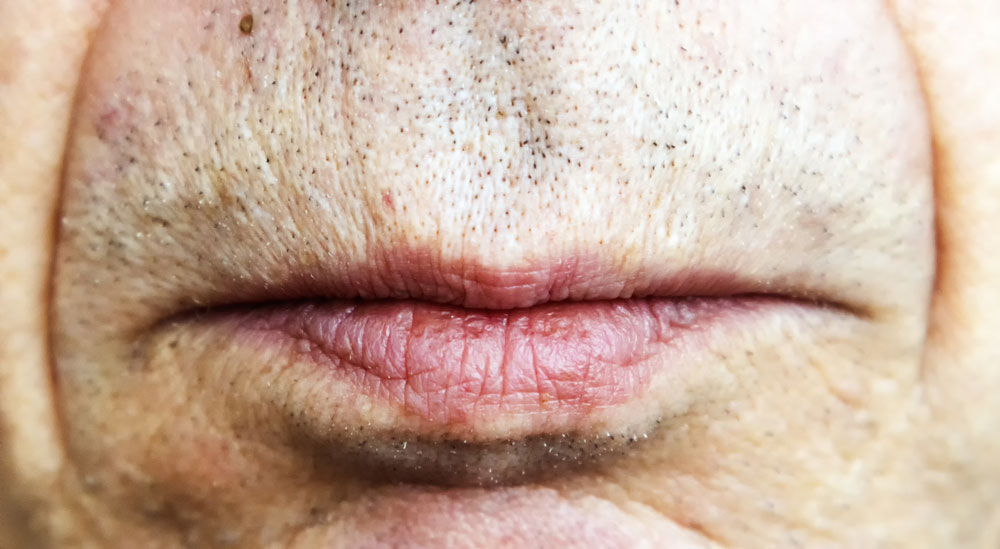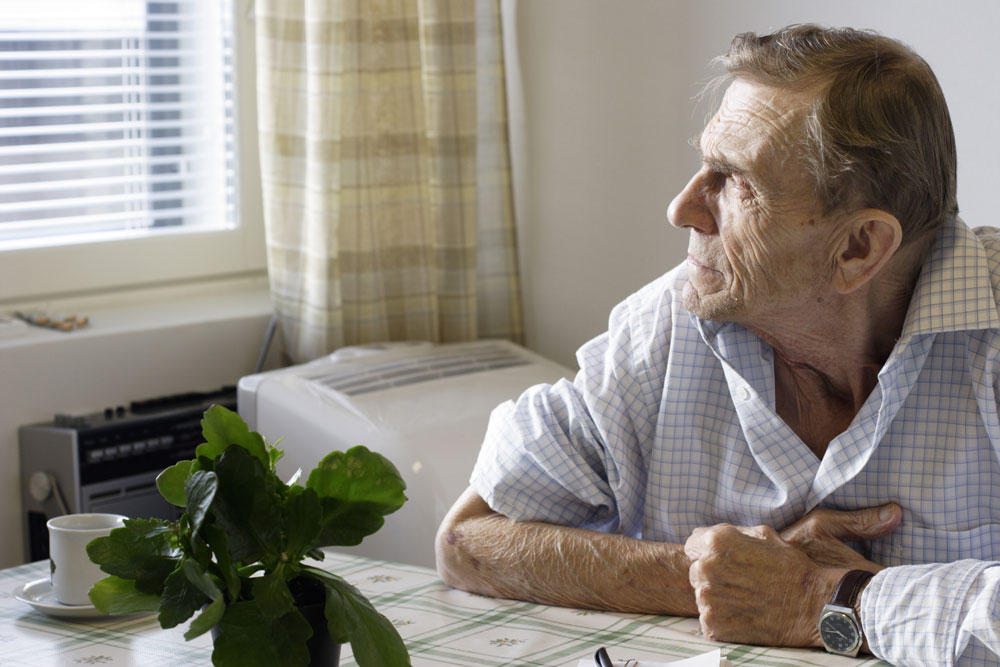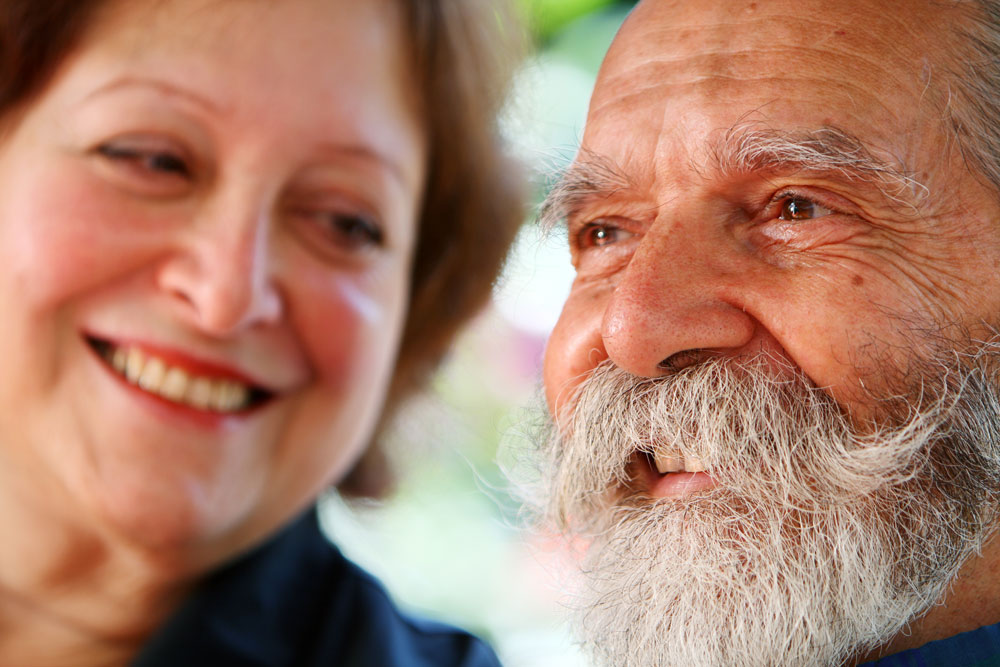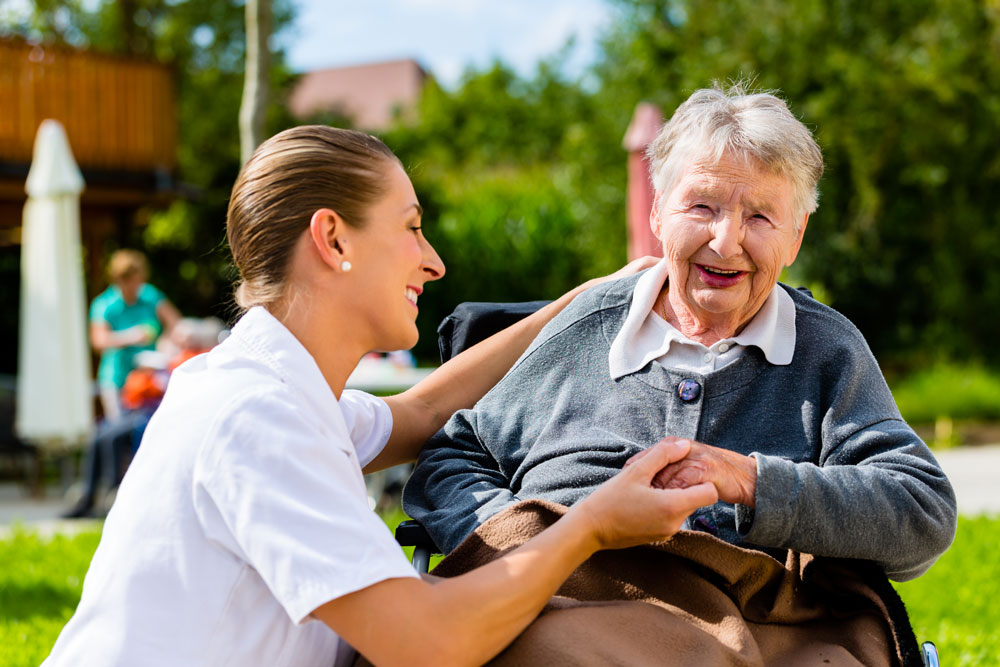Dry mouth can create difficulties in daily life.
This article is written from a Swedish perspective. Hopefully, it can serve as inspiration for interested parties in other countries.
Many elderly people suffer from dry mouth. This is due to them having too little saliva or the composition of the saliva changes. Saliva is necessary for us to be able to chew and swallow. Saliva also protects the teeth. Often, dry mouth sneaks up on you and it's not even certain that the person affected notices it themselves. Bring up the issue with the doctor as the problems could be related to medication. The dental hygienist can also provide good advice.
 Foto: Mostphotos
Foto: MostphotosMany elderly people suffer from dry mouth
What is often noticeable is that it can be troublesome to eat or swallow. The person may get bad breath and feel that the food does not taste as usual. Sometimes it is noticeable when the oral mucosa begins to bleed when brushing teeth. Sleep difficulties and deteriorated dental health are other symptoms. For those who have dental prostheses, it can become harder to use them.
The majority of those who live in elderly homes need support in connection with oral care. It is thus part of the daily care of the residents. The nurse also has a responsibility to regularly follow up on oral health. There are good risk assessment tools, ROAG, which are used to ensure the residents' oral health.
Dry mouth can be a side effect of medication treatment so doctors should always be informed. It may be possible to replace drugs that cause dry mouth or adjust the dose so that the discomfort decreases. It may be beneficial to consult with the resident's dental hygienist also about what could be the best help. They can also measure the saliva flow in the mouth.
Dry mouth can also occur more temporarily, for example, in connection with fever or dehydration from other causes. Stress can also contribute to dry mouth. By being vigilant about signs of dry mouth, we can avoid the resident having to suffer from dry mouth.
Dry mouth in the elderly:
Dry mouth is a common problem among older people and can be caused by various factors such as age, medication, and health conditions. Understanding the causes of dry mouth and the ability to take appropriate actions to alleviate the discomfort is an important task for staff in elderly homes.
Causes of dry mouth in the elderly:
Medication: Many older people take medications that can have side effects in the form of reduced saliva production, which can lead to dry mouth.
Age: Aging itself can affect saliva production and lead to an increased risk of dry mouth.
Diseases: Some medical conditions such as diabetes, Sjögren's syndrome, and Parkinson's disease may be associated with dry mouth.
Radiotherapy: Patients who have undergone radiotherapy in the head and neck region may experience prolonged dry mouth as a side effect.
Symptoms of dry mouth:
1. Dryness in the mouth and throat.
2. Difficulties in chewing and swallowing.
3. A burning sensation in the mouth.
4. Difficulties in speaking.
5. Increased risk of caries and gum problems due to reduced protective saliva.
Measures to alleviate dry mouth in elderly homes:
1. Water intake: Regularly offer water to the residents to keep the mouth moist and prevent dehydration.
2. Saliva-stimulating agents: Use saliva-stimulating chewing gums or lozenges to increase saliva production.
3. Avoid dehydrating foods: Reduce the consumption of caffeinated beverages and alcohol, as these can exacerbate dry mouth.
4. Dental care: Promote good dental hygiene through regular tooth brushing and the use of fluoride rinses to reduce the risk of caries.
5. Avoid tobacco: Encourage residents to avoid tobacco products, which can exacerbate dry mouth and lead to other oral health problems.
By being aware of the causes of dry mouth and by taking appropriate measures to alleviate the symptoms, elderly homes can help improve the quality of life for their residents and promote better oral health.
Reflection questions - dry mouth
Care staff:
- Do you have good routines to notice if a resident becomes dry in the mouth?
- Do you have good routines to help those who become dry in the mouth?
Manager, nurse, occupational therapist, and physiotherapist:
- Do you have routines to detect dry mouth in your residents?
- Do you have routines where oral health is examined regularly?
- Is oral care training offered to the staff regularly?
Residents and relatives:
- Have you experienced dry mouth?
- How does the quality of life get affected by having a dry mouth?
Erland Olsson
Specialist Nurse
Sofrosyne
Better care every day

Aktuellt i media
-
2025-12-18 04:00
16 Sjukdom och död
Survivor conversations - an important element in working with next of kin
info Bild från Summer Stock
Bild från Summer Stock - 2025-12-15 04:00 17 Psykisk hälsa
- 2025-12-11 04:00 07 Riskhantering
- 2025-12-08 04:00 06 Dokumentation
- 2025-12-03 04:00 06 Dokumentation
- 2025-12-01 04:00 02 Värdegrund






